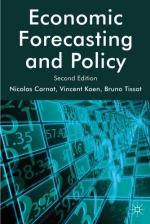|
This section contains 2,496 words (approx. 9 pages at 300 words per page) |

|
Prediction is a central concept in science and politics, with important ethical implications. Its meanings, however, differ in important if subtle ways in these different realms, which can cause confusion about the appropriate relationship between science and society. Distinguishing clearly between the meanings is crucial for understanding and prescribing an appropriate role for science in political and ethical decision making.
Prediction as Confirmation
One way of looking at science, championed especially by the influential twentieth-century philosopher Karl Popper, is to view knowledge acquisition as a process of first making, and then testing, falsifiable hypotheses (Popper 1992). According to this view, the first of these two activities generates predictions about the consequences of the hypotheses, and the second confirms or refutes the predictions. Perhaps the emblematic example of this type of prediction is how Albert Einstein's general theory of relativity, published in 1916, predicted that the path traveled by light would...
|
This section contains 2,496 words (approx. 9 pages at 300 words per page) |

|


